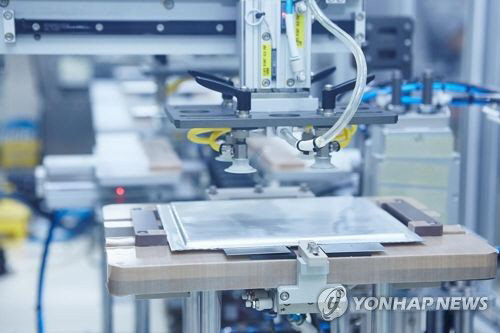Medium & Electric vehicle support fee may be decreased…Opportunity for local battery industry?
[ Park Jung Il comja77@ ] | 2017-11-27 11:03:45
[Photo] YONHAPNEWS
According to China`s Ministry of Finance and the Ministry of Finance and Economy on November 26, the Ministry of Finance and Economy (MOFE) announced that it would convene relevant ministries, experts` councils and related companies to discuss the plan to raise the ratio of electric car subsidies reduction to about 40%.
Initially, the Ministry of Finance, the National Development and Reform Commission, and the Ministry of Industry and Trade proposed a step-by-step guideline that cuts 20% of new energy subsidies by 2016 from 2017 to 2018, and cuts 40% from 2019 to 2020. The local automobile industry expects the subsidy to drop sharply this year, even if it does not reach 40% next year, given the recent plunge in the share prices of local electric car theme stocks.
According to a representative from the domestic battery industry, "China is paying subsidies differently depending on the distance it travels. It expects subsidies to decline further, especially for short-distance electric vehicles and plug-in hybrid cars (PHEV)."
This year, the Chinese central government has subsidized CNY 20,000 (about KRW 3,300,000) for electric vehicles capable of traveling at more than 100km and less than 150km, and about JPY 44,000 (about KRW 7227,000) for electric cars over 250km. In the case of PHEV, only JPY 24,000 will be paid to cars driven by electric power alone for more than 50 km. Local governments are giving additional subsidies here.
Domestic related industry expects that if China cuts subsidies by half, the number of local battery companies that are more than 3,000 are shrinking, bleeding competition will be resolved, and at the same time, local battery price competitiveness of domestic batteries . Currently, LG Chem and Samsung SDI are supplying batteries to some hybrid cars that are not subject to subsidies, but they are also exporting their production to China.
The industry, however, cited that the prerequisite is that the Chinese government must maintain free license registration for electric cars. Some Chinese municipalities, such as Beijing and Shanghai, are implementing policies such as restricting the registration of new license plates for automobiles or charging license plates of over CNY 90,000 to solve the problem of micro air. Instead, they are exempting electric cars and PHEVs. In this regard, LG Chem, Samsung SDI, and SK Innovation are preparing for or reviewing NCM811 battery production next year, raising their price competitiveness by raising their technological capabilities. NCM811 is a product that changes the ratio of nickel, cobalt, and manganese, which are anode materials, from the existing 6 to 2 to 2 to 8 to 1 to 1, increasing the energy density in the same volume. Lee Jung-bum, CEO of LG Chemical, predicted that the price of EV battery will drop 30 ~ 50% in 2022 due to the development of this technology and market growth at a recent event.
By Park Jung Il comja77@



